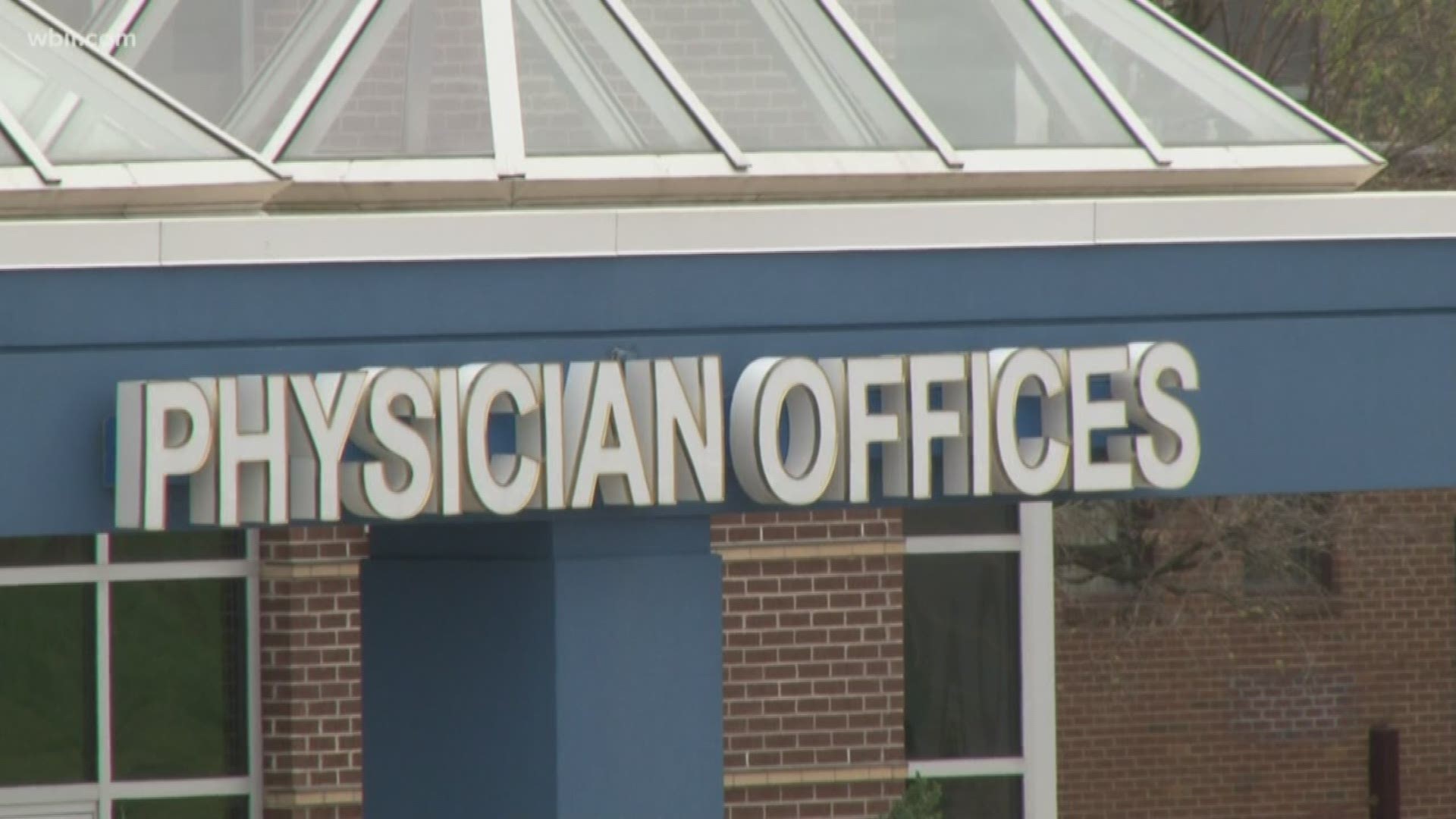SWEETWATER, Tenn. — As hospitals brace for an increase in patients with COVID-19, concerns are growing that facilities in rural areas may have more difficulty caring for patients, even if the virus spreads slower in less populated areas than urban ones.
"The current pandemic of coronavirus is a major stressor on Tennessee hospitals," said Carole Myers, a professor of public health at the University of Tennessee. "We lead the country in the rate of rural hospital closures."
A 10News review of a 2018 state report showed 173 intensive care beds, excluding neonatal, in Knox County. There were only 131 beds total in all other counties in the 10News viewing area, combined.
RELATED: CDC recommends pregnant women give birth with no family present during coronavirus outbreak
At a Sweetwater hospital in Monroe county, the administrator said staff is ready.
"There's a level of anticipation," Scott Bowman said. "We can't share resources with a sister hospital because we don't have a sister hospital."
Sweetwater's hospital is independent, with seven intensive care beds to serve patients from five East Tennessee counties.
"We have about a three month supply of pretty much everything that is required here," Bowman said.
But other rural hospitals may not be as prepared.
"I think common sense says that the rural hospitals do not have the reserve to respond to the pandemic in the same way that our larger urban hospitals have," Myers said. "In general people who live in rural areas, they're older, they're poorer, they're sicker and more uninsured."
Bowman said a handful of nurses quit rather than risk their health from the virus.
It's taking so long to get lab results back, he's worried about losing more staff to unneeded quarantines.
Bowman also said Knoxville area hospitals have reached out to offer assistance. Right now, his facility is appropriately prepared and able to treat COVID patients, he said.
Below is some data of the available beds, according to the 2018 Tennessee hospital Joint Annual Reports.
Anderson County:
Total: 10
Methodist Medical Center of Oak Ridge: 10 beds
Ridgeview Psychiatric Hospital and Center: 0 beds
Blount County:
Total: 16
Blount Memorial Hospital: 16 beds
Peninsula Hospital: 0 beds
Campbell County:
Total: 11
Jellico Community Hospital: 5 beds
Tennova Healthcare: 6 beds
Claiborne County:
Total: 5
Claiborne County Hospital: 5 beds
Cocke County:
Total: 5
Tennova Healthcare: 5 beds
Fentress County:
Total: 0
Tennova Healthcare Jamestown: 0
Grainger County:
No facilities in the county
Greene County:
Total: 11
Laughlin Memorial Hospital: 5 beds
Takoma Regional Hospital: 6 beds
Hamblen County:
Total: 24
Morristown- Hamblen Healthcare System: 24
Hawkins County:
Total: 1
Wellmont Hawkins County Memorial Hospital: 1 bed
Jefferson County:
Total: 6
Tennova Healthcare- Jefferson Memorial Hospital: 6 beds
Knox County:
Total: 190
East Tennessee Children's Hospital: 13 beds
Fort Sanders Regional Medical Center: 22 beds
Parkwest Medical Center: 30 beds
Tennova Healthcare: 12 beds
Turkey Creek Medical Center: 16 beds
University of Tennessee Memorial Hospital: 80 beds
Loudon County:
Total: 5
Fort Loudon Medical Center: 5 beds
McMinn County:
Total: 9
Starr Regional Medical Center: 9 beds
Starr Regional Medical Center Etowah: 0 beds
Monroe County:
Total: 7
Sweetwater Hospital Association: 7 beds
Roane County:
Total: 6
Roane Medical Center: 6 beds
Scott County:
Total: 0
Pioneer Community Hospital of Scott: 0 beds
Sevier County:
Total: 16
LeConte Medical Center: 16 beds
Union County:
There are no facilities in this county.

